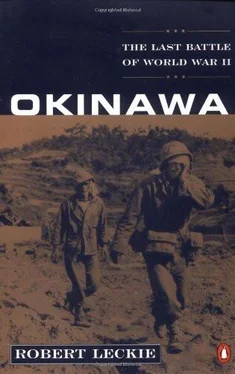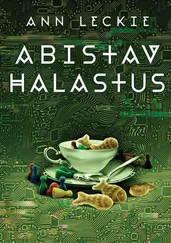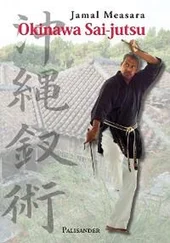This was the conclusion of the most authoritative voice on the subject, the U.S. Strategic Bombing Survey created by President Harry Truman to assess the effects of Allied bombing in World War II. It declared: “Based on a detailed investigation of surviving Japanese leaders involved, it is the Survey’s opinion that certainly prior to 31st December, 1945, and in all probability prior to 1st November, 1945, Japan would have surrendered, even if the atomic bombs had not been dropped, even if Russia had not entered the war, even if no invasion had been planned or contemplated.” No judgment could be more unequivocal. Why, then, were the bombs dropped?
Debate still rages over whether or not Japan should have been so ravaged. Harry Truman to his dying day insisted that he “never had any doubt” about the necessity of striking Nippon with atomic weapons. However, recent examination of his private papers produced a letter to his sister in which he wrote: “It was a terrible decision.” Some critics claim that Japan was chosen rather than Germany because it was an Oriental nation—ignoring the fact that the Nazis had been destroyed in May, two months before the “Fat Boy” on its tower at Alamogordo flashed upward with a light not of this world—or that the thickening mood of savage revenge that had seized the American public had to be satisfied. Apart from such emotional conclusions, it should be obvious that the atomic bomb kept Stalin out of Western Europe and forced him to walk softly in Asia. This was indeed a strategic consideration of the highest order, one that no sincere statesman could refuse to balance against the hideous loss of life and property that would ensue under the mushroom cloud; together with the certainty that American declarations of desiring peace and prosperity for all peoples would henceforth have to be read in the light of those terrible fireballs. Nevertheless, the atomic bombs did indeed keep the Soviet Union out of Western Europe and curtailed its ambitions in the Far East, even though they also presented the Soviets with a powerful psychological stick with which to beat the United States and its Free World allies.
To these considerations must be added the convictions of many high-ranking naval and air commanders—none of them members of the Joint Chiefs of Staff—that Japan could be bombed, shelled, and blockaded into submission. This is probably true, but can never be proved. At best such a policy would indubitably have saved many American lives, even though it would almost certainly have caused horrible and unimaginable suffering in Japan. Because it would have taken so much longer, it would have given the insatiably land-hungry Stalin the opportunity to enter the war for a much longer period than his actual six-day contribution, and thus cloak him in the customary mane of the lion roaring for his “rightful” share of the spoils. Hiroshima, then, did save Japan from the brutal and selfish policies of her War Lords determined that the nation must die like a dutiful Samurai. But Nagasaki was absolutely unnecessary, coming only three days after Hiroshima and thus too close to influence any decision. Probably it was dropped to show Japan that the United States possessed more than one bomb—actually it had only two—and presumably could produce many more.
From all this speculation only two probabilities seem to emerge: one, that Japan was already beaten and would have surrendered before the monster Operation Olympic invasion began three months later; two, that Harry Truman dropped both bombs as much to frighten Stalin as to finish off Japan.
Where, then, does this leave Okinawa?
A corollary of the myth of the atomic bombs is the other though less widespread misconception of Okinawa as an unnecessary battle. Here is one more instance of that cart-before-the-horse thinking common to those facile minds so well described by Aristotle: “Contemplating little, they have no difficulty deciding.” The Battle for Okinawa was begun on April 1, 1945, more than 4 months before the bombing of Hiroshima and 3½ months before the first bomb was exploded at Alamogordo. The Americans wanted Okinawa for a staging area only 375 miles from Kyushu, the Japanese hoped through its kamikaze corps either to cripple or destroy the enemy sea power that had brought the Americans so close to Japan proper.
Because Imperial General Headquarters had not the slightest suspicion that the Americans were close to producing an atomic bomb, General Ushijima and his Thirty-second Army expected to defend Okinawa with conventional weapons, while General Buckner intended to seize the Great Loo Choo with the same instruments of war. Not until just before Hiroshima were Fleet Admiral Nimitz and General of the Armies MacArthur—the officers who would command the invasion of Japan—informed that their country now possessed atomic weapons. By then, of course, Okinawa had fallen—and when it did, it so shocked Emperor Hirohito that he could echo what Fleet Admiral Osami Nagano, his personal naval advisor, had cried when he learned of the loss of Saipan: “Hell is on us!”
Until Okinawa, Hirohito had been an accomplice of the War Lords; if not a willing one, then, in the words of MacArthur, who came to know him better than any other Westerner: “a figurehead, but not quite a stooge.” After its fall, he was ready to challenge them, and the atomic bombs gave him that opportunity.
So Okinawa was indeed decisive, for if the Japanese had won in this biggest battle of the Pacific War, the hold of the War Lords upon the nation of Nippon would have been so strengthened that even the influence of Hirohito could not have persuaded the Imperial Conference to accept the Allied surrender offer. Thus, the war would have been prolonged—hopelessly for Japan, of course—and only the production and use of more atomic bombs would have avoided that titanic clash of arms upon the Tokyo Plain.
Abele
Ainu
Amamiya, Tatsumi
ambush tactics
ammunition, supplying of
Anderson, Beauford “Snuffy”
Anthony
Ara Point
Archer, Robert
Ariga, Kosaku
Arima, Masafumi
Aristotle
Arkansas
Army Air Forces (POA)
Army Ground Forces (POA)
Arnold, Archibald
Arnold, H. H. “Hap”
Asa River
Asashimo
Asato River
Astoria
atomic bombs
dropped on Hiroshima and Nagasaki
Australia
Axtell, George
B-29 bombers (Superfortresses)
Bache
Badoglio, Pietro
baka (Oka; Cherry Blossom) bombs
Banzai charges
Barry
Bates
Beary, D. G.
Belman, Dave
Bennington
Biak
Bimbo Butai (Poor Detachment)
Birmingham
Biscansin, Al
Blakelock, David
Boeitai
Bonin Islands
Borneo
Bourne, R. F.
Bradford, William
Bradford Force
Bradley, James
Bradley, Omar
Braine
Brocade Banner affair
Bruce, Andrew
Buckner, Simon Bolivar, Jr.
death of
Minatoga landing rejected by
surrender appeal of
Tenth Army and
Turner and
Buckner, Simon Bolivar, Sr.
Buckner Bay (Nakagusuku Bay)
Buddhism
Bulge, Battle of the
Bunker Hill
Burma
Bush
Bush, Richard
Bush, Robert
Bushido see also Samurai
Canberra
Cary, Donald
Cassidy, John
Catholicism
Catmon Hill
Cernawsky, Anthony
Cherry Blossom (Oka; baka) bombs
Cherry Society (Sakura-kai)
Chicago
China, Okinawa and
Cho, Isamu
Buckner’s surrender appeal and
Читать дальше










